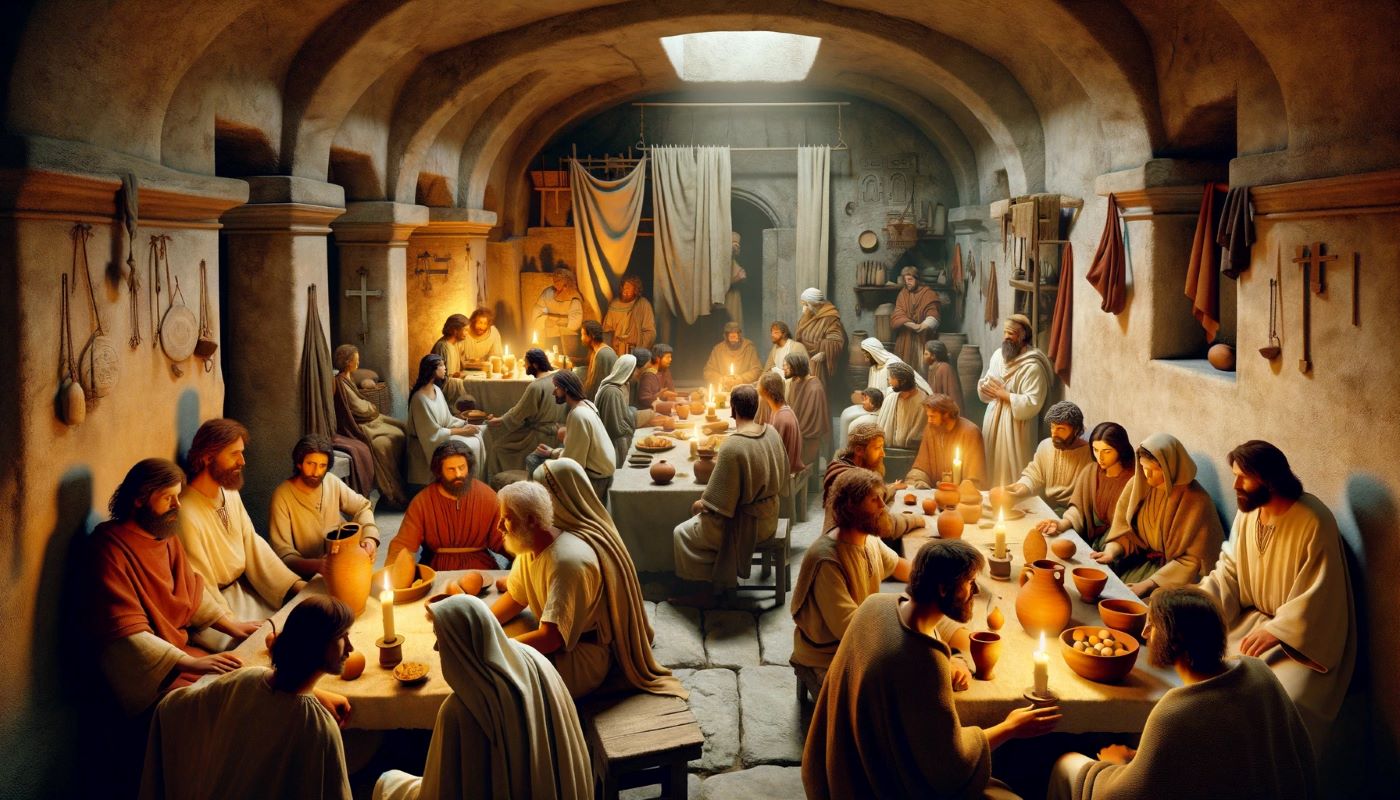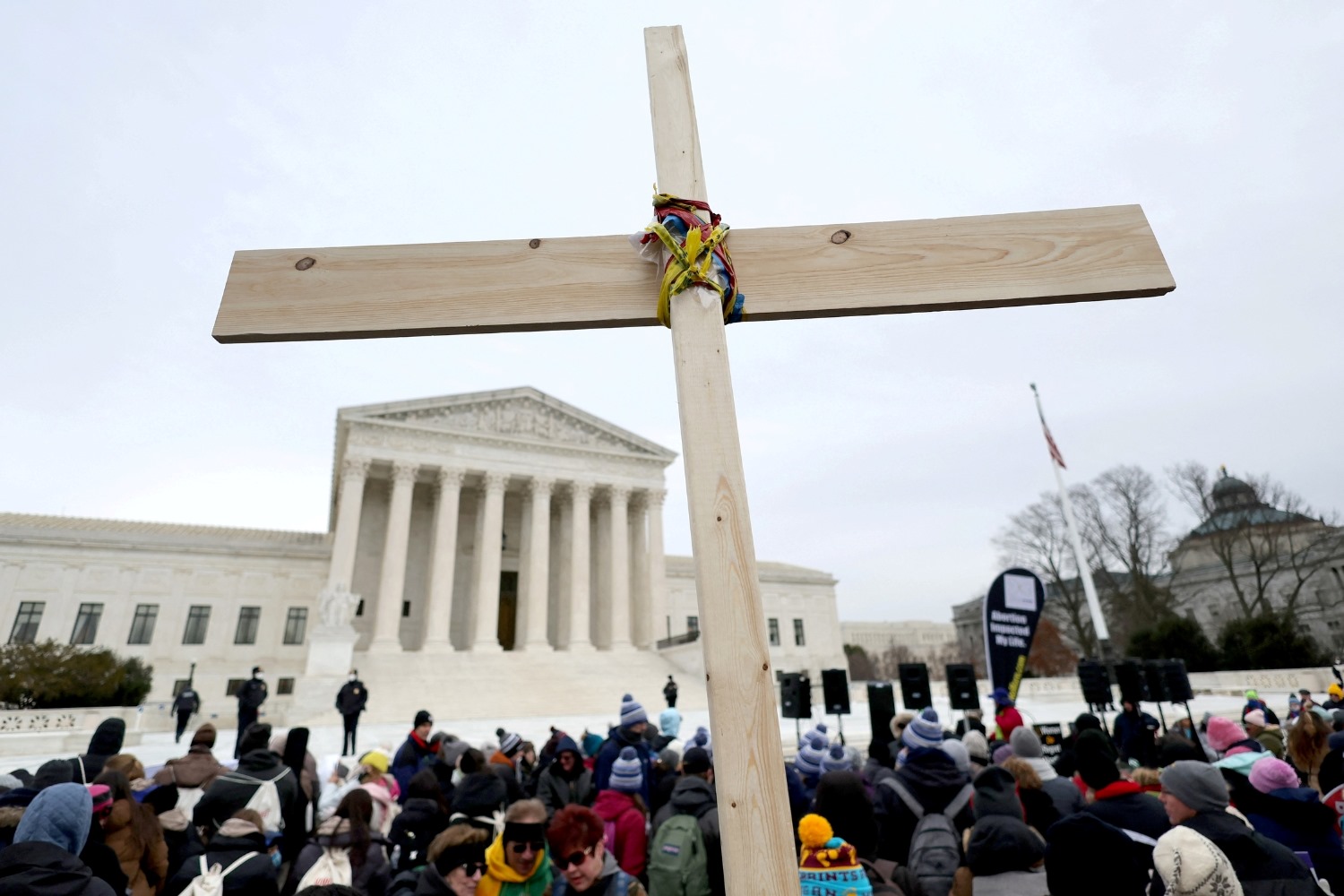Home>Theology and Spirituality>What Is Cooperative Baptist Fellowship Beliefs


Theology and Spirituality
What Is Cooperative Baptist Fellowship Beliefs
Published: February 24, 2024
Ericka Andersen, an editor at Christian.net, expertly merges digital strategy with content creation, focusing on faith and societal issues. Her communication skills enhance the platform's engaging narratives, fostering meaningful dialogue on belief's impact on society.
Discover the theology and spirituality of Cooperative Baptist Fellowship beliefs. Explore our core values and beliefs in theology and spirituality.
(Many of the links in this article redirect to a specific reviewed product. Your purchase of these products through affiliate links helps to generate commission for Christian.net, at no extra cost. Learn more)
Table of Contents
Introduction
The Cooperative Baptist Fellowship (CBF) is a vibrant community of diverse individuals and churches united by their commitment to the gospel of Jesus Christ. Founded in 1991, CBF has grown to become a leading voice in the Baptist tradition, emphasizing the values of cooperation, compassion, and faithfulness. With a rich tapestry of theological perspectives and a dedication to missions and ministry, the Cooperative Baptist Fellowship stands as a beacon of hope and love in a world that often feels divided and uncertain.
As we delve into the beliefs and practices of the Cooperative Baptist Fellowship, it's important to recognize the organization's deep roots in Baptist history and its forward-looking approach to contemporary issues. The CBF is not just a denomination; it's a dynamic movement that seeks to embody the teachings of Jesus in a way that is relevant and transformative for today's world. From its commitment to social justice to its inclusive approach to theology, the Cooperative Baptist Fellowship offers a compelling vision of what it means to be a follower of Christ in the 21st century.
In the following sections, we will explore the history of the Cooperative Baptist Fellowship, its core beliefs, its approach to sacraments such as baptism and communion, its stance on social issues, and its relationships with other Christian denominations. Through this exploration, we will gain a deeper understanding of the values and principles that shape the identity of the Cooperative Baptist Fellowship and the impact it has on the lives of its members and the broader community.
Read more: What Are Primitive Baptist Beliefs
History of Cooperative Baptist Fellowship
The Cooperative Baptist Fellowship (CBF) traces its roots to the Southern Baptist Convention (SBC), a denomination that experienced significant theological and ideological shifts in the latter half of the 20th century. As the SBC moved towards a more conservative stance on various theological and social issues, a group of Baptist leaders and congregations sought to maintain a commitment to historic Baptist principles while embracing a more moderate and inclusive approach.
In response to these evolving dynamics within the SBC, the Cooperative Baptist Fellowship was officially formed in 1991. The founding of CBF represented a pivotal moment in Baptist history, as it provided a platform for individuals and churches who desired a fellowship that valued cooperation, theological diversity, and a holistic approach to ministry.
From its inception, CBF has been characterized by its commitment to missions, education, and advocacy. The organization has played a significant role in supporting global missions, theological education, and social justice initiatives. This commitment to holistic ministry reflects the belief that faith should be lived out in tangible ways, addressing the spiritual, physical, and social needs of individuals and communities.
Over the years, the Cooperative Baptist Fellowship has continued to grow and evolve, expanding its reach and influence both domestically and internationally. The organization has fostered partnerships with a wide range of individuals and organizations, emphasizing the importance of collaboration and unity in advancing the kingdom of God.
Today, the Cooperative Baptist Fellowship stands as a testament to the enduring spirit of Baptist principles and the ongoing pursuit of a faith that is both rooted in tradition and responsive to the challenges of the contemporary world. As CBF looks to the future, it remains dedicated to its founding vision of embodying the love and teachings of Jesus Christ in ways that are inclusive, compassionate, and transformative.
Core Beliefs of Cooperative Baptist Fellowship
At the heart of the Cooperative Baptist Fellowship (CBF) are a set of core beliefs that shape its identity and guide its mission and ministry. These beliefs reflect a commitment to the teachings of Jesus Christ and the foundational principles of the Baptist tradition, while also embracing a spirit of openness, diversity, and inclusivity.
1. Soul Freedom and Autonomy of the Local Church
CBF upholds the principle of soul freedom, affirming the individual's freedom to interpret and respond to the gospel without coercion or manipulation. This belief underscores the importance of personal conscience and the autonomy of the local church in matters of faith and practice.
2. Priesthood of All Believers
The Cooperative Baptist Fellowship affirms the priesthood of all believers, recognizing that every follower of Christ has direct access to God and is called to participate in the work of ministry. This belief emphasizes the value of every individual within the faith community and encourages active engagement in the life and mission of the church.
Read more: What Is A Southern Baptist Beliefs
3. Scripture as the Authority for Faith and Practice
CBF regards the Bible as the primary authority for matters of faith and practice. While embracing a diversity of interpretations and theological perspectives, the organization is committed to the study, interpretation, and application of scripture in ways that are faithful to its message and transformative for individuals and communities.
4. Religious Freedom and Church-State Separation
The Cooperative Baptist Fellowship advocates for religious freedom and the separation of church and state. This belief reflects a commitment to upholding the rights of individuals to practice their faith without interference from the government, while also affirming the importance of a pluralistic society where diverse religious expressions are respected and protected.
5. Cooperative Missions and Ministry
CBF values the spirit of cooperation in missions and ministry, recognizing the strength and impact that can be achieved through collaborative efforts. This belief inspires a commitment to working together with individuals, churches, and organizations to address social, spiritual, and physical needs, both locally and globally.
6. Inclusive Community and Diversity
The Cooperative Baptist Fellowship embraces an inclusive and diverse community, welcoming individuals from different backgrounds, cultures, and theological perspectives. This belief reflects a commitment to creating a space where all are valued and affirmed, fostering a spirit of unity amidst diversity.
These core beliefs serve as the foundation upon which the Cooperative Baptist Fellowship stands, shaping its ethos, guiding its practices, and inspiring its members to embody the love and teachings of Jesus Christ in ways that are relevant, compassionate, and transformative.
Approach to Baptism and Communion
Baptism and communion hold significant importance within the life of the Cooperative Baptist Fellowship (CBF), serving as sacred practices that symbolize spiritual truths and foster a sense of community and connection among believers.
Baptism
CBF embraces a broad spectrum of perspectives on baptism, reflecting the diversity of theological understandings within the fellowship. The organization recognizes and respects various modes of baptism, including immersion, affusion, and sprinkling, understanding that each holds deep significance for different individuals and congregations. This inclusive approach to baptism reflects CBF's commitment to honoring the diversity of beliefs and practices within the broader Baptist tradition while emphasizing the unifying significance of baptism as a symbol of faith and discipleship.
Communion
Similarly, the Cooperative Baptist Fellowship approaches communion, also known as the Lord's Supper or the Eucharist, with a spirit of openness and inclusivity. The organization views communion as a sacred act of remembrance, celebration, and spiritual nourishment, inviting all believers to participate in the shared experience of partaking in the bread and cup. CBF affirms the presence of Christ in the communion elements and emphasizes the communal nature of the practice, fostering an environment where individuals from diverse backgrounds can come together to partake in the symbolic meal, recognizing the unity and fellowship that transcends theological differences.
The approach to baptism and communion within the Cooperative Baptist Fellowship reflects a commitment to honoring the diverse theological perspectives and practices present within the fellowship, while also emphasizing the unifying and transformative power of these sacred rituals. Through these practices, CBF seeks to create a space where individuals can encounter the presence of God, experience spiritual renewal, and participate in the ongoing narrative of faith and community.
This approach to baptism and communion underscores the organization's dedication to fostering a community where individuals can engage in these sacred practices in ways that are meaningful, inclusive, and reflective of the rich tapestry of beliefs and experiences within the Cooperative Baptist Fellowship.
Views on Social Issues
The Cooperative Baptist Fellowship (CBF) holds a deep commitment to engaging with and addressing a wide range of social issues, reflecting its dedication to embodying the love and justice of Jesus Christ in the world. At the core of CBF's approach to social issues is a belief in the inherent worth and dignity of every individual, as well as a recognition of the interconnectedness of social, economic, and ethical concerns.
One of the central tenets of CBF's engagement with social issues is its advocacy for social justice and human rights. The organization actively seeks to address systemic injustices, including poverty, racial inequality, gender discrimination, and immigration issues. Through partnerships with local communities and advocacy initiatives, CBF works to promote policies and practices that uphold the dignity and rights of all individuals, particularly those who are marginalized or vulnerable.
In addition to its focus on social justice, the Cooperative Baptist Fellowship is deeply committed to environmental stewardship and sustainability. Recognizing the importance of caring for God's creation, CBF emphasizes the ethical responsibility of individuals and communities to protect the environment and promote sustainable practices. This commitment to environmental stewardship reflects CBF's understanding of the interconnectedness of social, ecological, and spiritual well-being.
Furthermore, CBF actively engages with issues related to global peace and conflict resolution. The organization advocates for peaceful and just solutions to conflicts, both domestically and internationally, and supports initiatives that promote reconciliation, diplomacy, and the prevention of violence. This commitment to peacebuilding aligns with CBF's vision of fostering communities of compassion and understanding, where conflicts are addressed with empathy and a commitment to nonviolent resolution.
Moreover, the Cooperative Baptist Fellowship is dedicated to addressing healthcare disparities and promoting access to quality healthcare for all individuals. CBF recognizes the importance of holistic well-being and advocates for policies and initiatives that ensure equitable access to healthcare services, particularly for underserved and marginalized communities.
In addressing these and other social issues, the Cooperative Baptist Fellowship exemplifies a holistic and compassionate approach to ministry and advocacy. By engaging with these challenges, CBF seeks to embody the teachings of Jesus Christ, who demonstrated a deep concern for the marginalized, the oppressed, and the vulnerable. Through its commitment to social justice, environmental stewardship, peacebuilding, and healthcare advocacy, CBF endeavors to be a transformative presence in the world, reflecting the love, compassion, and justice of God.
Relationship with Other Christian Denominations
The Cooperative Baptist Fellowship (CBF) maintains a posture of openness, collaboration, and mutual respect in its relationships with other Christian denominations. Grounded in the belief in the unity of the body of Christ, CBF seeks to foster meaningful partnerships and dialogue with diverse Christian traditions, recognizing the value of learning from and engaging with the broader Christian community.
CBF's commitment to ecumenism is rooted in a spirit of humility and a recognition of the rich diversity of theological perspectives and worship practices across Christian denominations. The organization actively participates in interfaith and ecumenical initiatives, seeking common ground while celebrating the distinctiveness of each tradition. This approach reflects CBF's belief in the transformative power of unity amidst diversity, as well as its dedication to building bridges of understanding and cooperation across denominational lines.
Furthermore, CBF values the opportunity to engage in collaborative efforts with other Christian denominations in areas of shared mission and ministry. Through partnerships and joint initiatives, CBF seeks to address social, spiritual, and global challenges in a spirit of unity and shared purpose. This collaborative approach not only amplifies the impact of CBF's mission and ministry but also fosters a sense of interconnectedness and solidarity within the broader Christian community.
In addition to its commitment to ecumenical engagement, CBF actively participates in interfaith dialogue and cooperation, recognizing the importance of building relationships with individuals and communities of diverse religious backgrounds. By engaging in respectful and meaningful dialogue with individuals of other faith traditions, CBF seeks to promote understanding, cooperation, and the pursuit of shared values that contribute to the common good.
Overall, the Cooperative Baptist Fellowship's relationship with other Christian denominations is characterized by a commitment to unity, collaboration, and respectful engagement. By embracing the diversity of the Christian community and actively seeking opportunities for partnership and dialogue, CBF exemplifies a spirit of openness and cooperation that reflects its dedication to embodying the love and teachings of Jesus Christ in a way that transcends denominational boundaries.
Conclusion
In conclusion, the Cooperative Baptist Fellowship (CBF) stands as a vibrant and inclusive community that embodies the core principles of the Baptist tradition while embracing a forward-looking and compassionate approach to faith and ministry. From its rich history rooted in the pursuit of theological diversity and cooperation to its commitment to addressing social issues and engaging with the broader Christian community, CBF exemplifies a vision of faith that is both deeply rooted in tradition and responsive to the challenges of the contemporary world.
The history of CBF reflects a pivotal moment in Baptist history, marked by a commitment to maintaining the values of cooperation, compassion, and faithfulness amidst evolving theological and ideological dynamics. Since its founding in 1991, CBF has remained dedicated to missions, education, and advocacy, fostering partnerships and initiatives that reflect a holistic approach to ministry and a commitment to embodying the love and teachings of Jesus Christ.
At the core of CBF's identity are its core beliefs, which emphasize soul freedom, the priesthood of all believers, the authority of scripture, religious freedom, cooperative missions, and an inclusive community. These beliefs serve as the foundation upon which CBF's ethos and practices are built, guiding its mission and inspiring its members to live out the teachings of Jesus in ways that are relevant, compassionate, and transformative.
CBF's approach to baptism and communion reflects a commitment to honoring diverse theological perspectives and practices within the fellowship while emphasizing the unifying and transformative power of these sacred rituals. The organization's engagement with social issues, including social justice, environmental stewardship, peacebuilding, and healthcare advocacy, underscores its dedication to embodying the love and justice of Jesus Christ in the world.
Furthermore, CBF's relationships with other Christian denominations are characterized by a spirit of openness, collaboration, and mutual respect, reflecting its commitment to unity amidst diversity and its dedication to building bridges of understanding and cooperation across denominational and religious lines.
In essence, the Cooperative Baptist Fellowship offers a compelling vision of what it means to be a follower of Christ in the 21st century. Through its rich history, core beliefs, approach to sacraments, engagement with social issues, and relationships with other Christian denominations, CBF exemplifies a faith that is inclusive, compassionate, and transformative, embodying the enduring values of the Baptist tradition while embracing the challenges and opportunities of the contemporary world.












